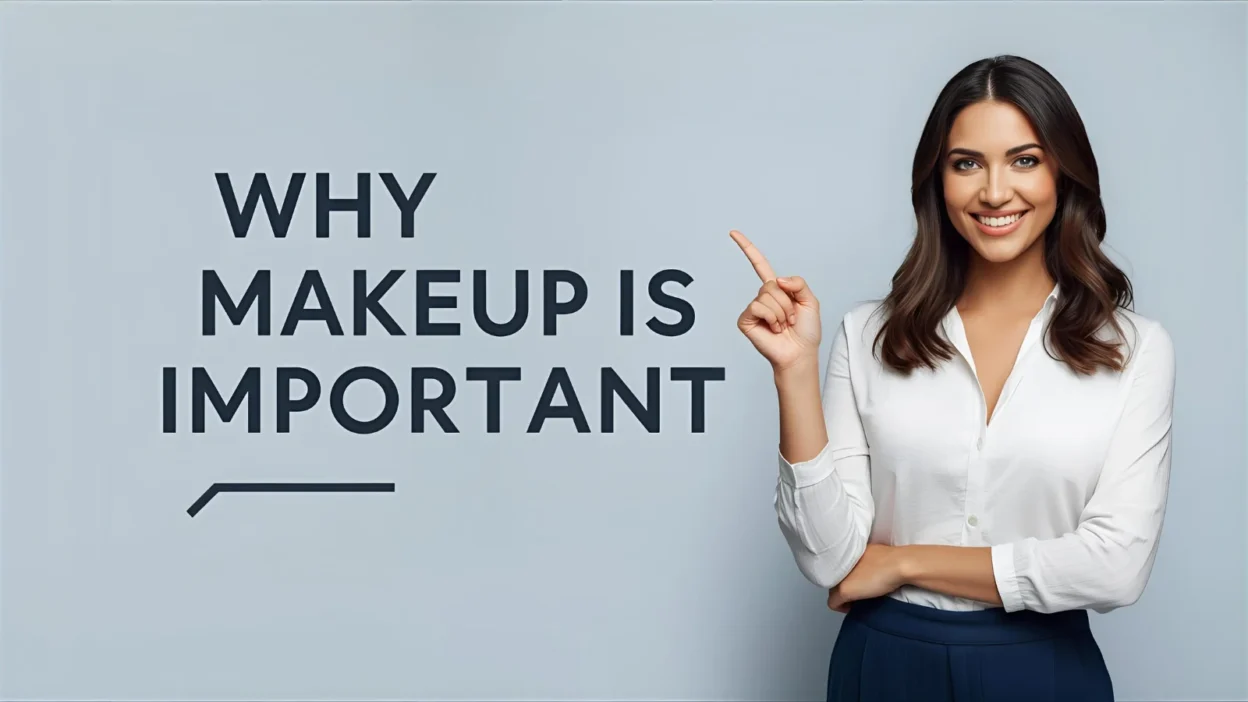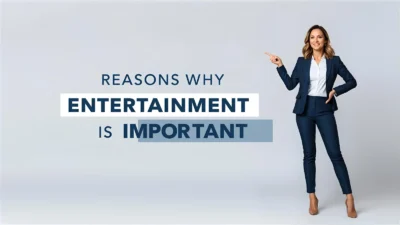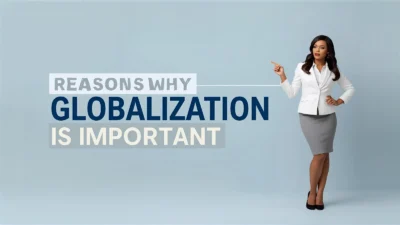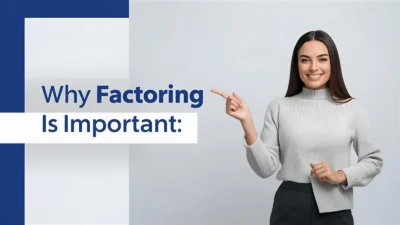Makeup has been part of human culture for thousands of years. From the ancient Egyptians lining their eyes with kohl to modern beauty influencers experimenting with bold palettes, makeup has always carried meaning. But it’s not just about looking pretty—it’s about expression, confidence, culture, and creativity.
This article explores the reasons why makeup is important—for individuals, society, and even history.
Understanding the Meaning of Makeup
Makeup refers to cosmetic products applied to the face or body to enhance or alter appearance.
But it’s more than lipstick or mascara—it’s:
- A form of self-expression.
- A confidence booster.
- A tool for storytelling and culture.
📌 Definition: Makeup is the art and practice of using cosmetics to enhance beauty, express personality, or serve a cultural role.
The Psychology of Makeup
Psychologists say makeup has deep effects on how people feel and behave:
- Boosts self-esteem – looking polished increases confidence.
- Shapes perception – studies show people wearing makeup are often seen as more competent.
- Acts as a ritual – applying makeup can be calming and empowering.
- Encourages creativity – experimenting with colors and styles sparks imagination.
💡 In short: Makeup influences not just how others see us, but also how we see ourselves.
Reasons Why Makeup Is Important in Daily Life
Makeup plays multiple roles in everyday living:
- Professional setting – helps create a polished, confident image.
- Special occasions – weddings, parties, or celebrations often include makeup traditions.
- Personal identity – allows people to express mood or style.
- Social media and entertainment – makeup artistry inspires millions online.
🌱 Example: A student may wear light makeup for confidence before giving a presentation.
Cultural and Historical Importance of Makeup
Makeup is woven into the story of human civilization:
- Ancient Egypt – eyeliner symbolized spirituality and protection.
- Japan – geisha makeup represents tradition and artistry.
- Indigenous tcrews – body paint and natural pigments carry cultural meanings.
- Modern times – makeup continues to evolve with fashion and identity movements.
🌍 Makeup reflects culture, beliefs, and self-expression across time.
Makeup as an Art Form
Makeup is not just cosmetics—it’s artistry:
- Face painting turns skin into a canvas.
- Special effects (SFX) makeup transforms actors in films.
- Creative looks on social media showcase trends and skills.
- Runway makeup complements fashion storytelling.
✨ Makeup bridges beauty and creativity, making it a respected art form.
Makeup and Confidence
- First impressions – makeup can help people feel more presentable.
- Self-love – many see applying makeup as self-care.
- Personal empowerment – bold looks make strong statements.
- Confidence in visibility – makeup can reduce insecurities (acne scars, dark circles, etc.).
💡 Confidence often comes not from hiding flaws, but from celebrating self-expression.
Economic Importance of Makeup
The beauty industry is one of the largest markets worldwide:
- Creates millions of jobs (artists, product developers, marketers).
- Drives innovation in skincare and cosmetics.
- Boosts local economies through salons, beauty schools, and retail.
- Expands global trade in fashion and beauty products.
💰 Makeup is both personal and economic power.
Types of Makeup
Makeup isn’t one-size-fits-all—it comes in many forms:
- Everyday makeup – light, natural looks.
- Bridal makeup – elegant and long-lasting.
- Stage/film makeup – dramatic or transformative.
- SFX makeup – special effects for movies or theater.
- Avant-garde makeup – bold, experimental art.
📌 Each type has its own purpose—practical, artistic, or cultural.
Real-Life Examples of Makeup’s Impact
- Celebrities use makeup to craft iconic styles (e.g., Marilyn Monroe’s red lips).
- Influencers create trends that millions follow.
- Activists use makeup as political statements (bold colors during protests).
- Everyday people gain confidence through simple, natural looks.
🌟 Makeup shapes identity and leaves lasting impressions.
Challenges and Criticism of Makeup
Despite its benefits, makeup faces criticism:
- Unrealistic beauty standards – pressure to always look flawless.
- Over-commercialization – expensive brands push consumerism.
- Stigma – some view makeup as “fake” or unnecessary.
- Skin health issues – poor-quality products may cause irritation.
📌 The key is balance—makeup should be a choice, not an expectation.
How to Use Makeup Wisely
Tips for a healthy relationship with makeup:
- Use products suited to your skin type.
- Remember makeup is optional, not mandatory.
- Mix skincare with makeup for balance.
- Experiment with creativity but stay authentic.
- Focus on confidence, not perfection.
🌱 Makeup should enhance your life—not control it.
Idioms and Expressions Related to Makeup
- “Put on a brave face” – hide emotions, like makeup hides flaws.
- “Made up” – to reconcile or create a story.
- “Paint the town red” – go out partying (often with makeup and style).
- “Lipstick on a pig” – trying to make something unattractive look good.
- “Powder your nose” – polite phrase for excusing oneself to the restroom.
Synonyms for Makeup (with Usage Examples)
| Synonym | Example Sentence |
|---|---|
| Cosmetics | She keeps her cosmetics neatly organized. |
| Beauty products | New beauty products launch every month. |
| Face paint | Tribal face paint holds symbolic meaning. |
| Foundation | Her foundation matched her skin perfectly. |
| Glam | She went full glam for the event. |
Grammar Note: “Makeup” vs. “Make up”
- Makeup (noun): cosmetics or appearance.
- Her makeup looked stunning.
- Make up (verb): to reconcile, invent, or compensate.
- They decided to make up after the argument.
📌 Mistake to avoid: confusing “makeup” (cosmetics) with “make up” (verb).
The Future of Makeup
Makeup is evolving with society:
- Sustainable products – eco-friendly, cruelty-free cosmetics.
- Inclusive shades – brands now cater to all skin tones.
- Tech + beauty – virtual try-ons and AI-driven makeup apps.
- Gender-neutral makeup – breaking stereotypes about who “should” wear it.
🌍 The future of makeup is inclusive, innovative, and empowering.
FAQs About Why Makeup Is Important
Q1: Why do people wear makeup?
To boost confidence, express creativity, and enhance appearance.
Q2: Is makeup only for women?
No, makeup is gender-neutral—men, women, and non-binary people wear it.
Q3: Does makeup improve self-esteem?
Yes, for many people makeup boosts self-image and confidence.
Q4: Is makeup bad for the skin?
Not if you use quality products and follow proper skincare.
Q5: Why is makeup important in culture?
Because it reflects traditions, identities, and social expression.
Conclusion
Makeup is not just about looking beautiful—it’s about expression, confidence, creativity, and culture. It has been with humanity since ancient times, evolving into a powerful tool for both art and identity.
While society often debates its value, one truth stands firm: makeup is important because it allows people to show who they are, how they feel, and how they want to be seen.

Bret Lee writes educational and research-based content for Whygenix.com, focused on clarity, accuracy, and explaining why concepts matter through simple, engaging, reader-friendly writing.




